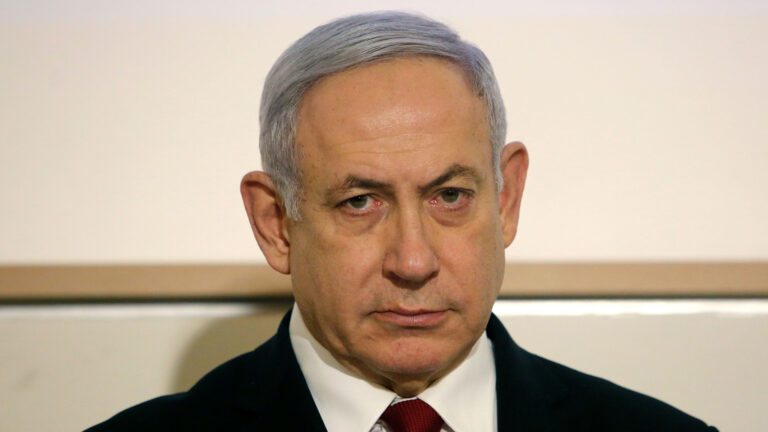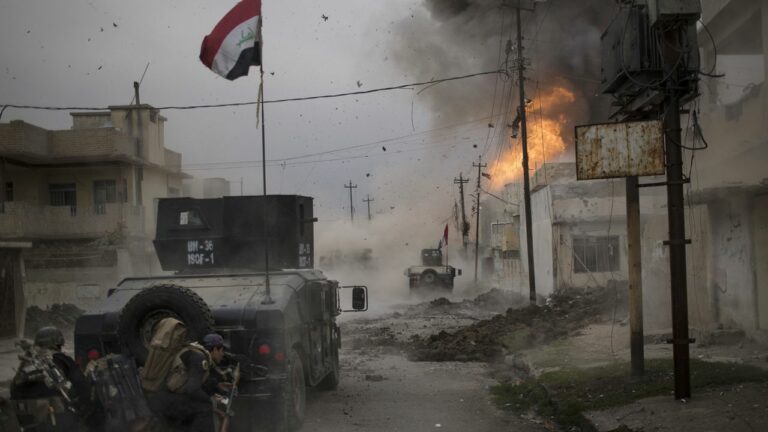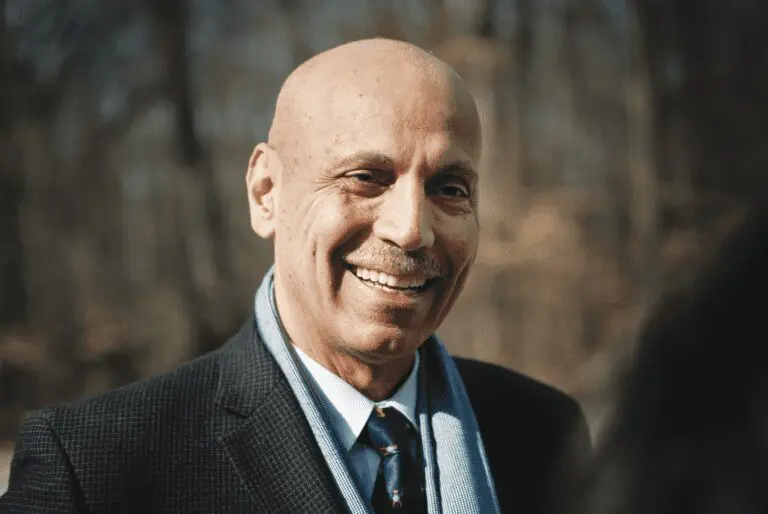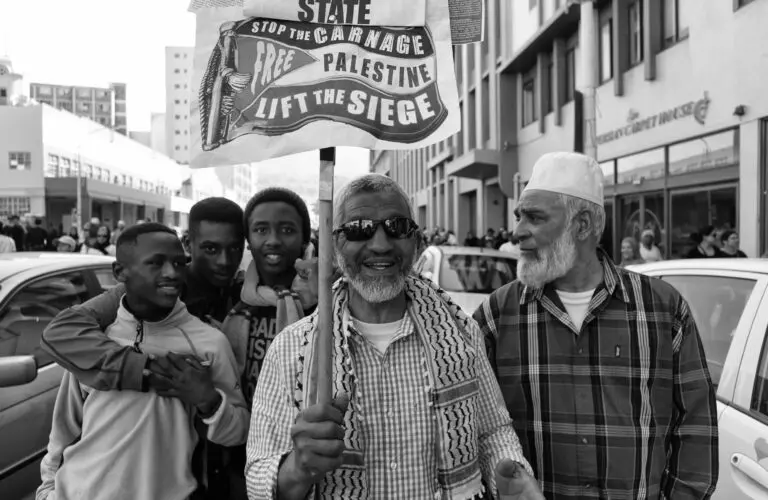This is an episode of Reality Asserts Itself, produced on November 1, 2013. In the final episode of Reality Asserts Itself with Paul Jay, Max Blumenthal responds to critics who say he has not dealt with the effect of terrorist attacks and anti-Jewish propaganda in the Arab world in strengthening racist and apartheid opinion in Israel.
PAUL JAY, SENIOR EDITOR, TRNN: Welcome to The Real News Network. I’m Paul Jay in Baltimore. And welcome to Reality Asserts Itself.
This is a continuation of our series of interviews with Max Blumenthal, author of the book Goliath: Life and Loathing in Greater Israel. And he now joins us in the studio.
Thanks for joining us again.
MAX BLUMENTHAL, AUTHOR, JOURNALIST, BLOGGER: Good to be with you.
JAY: Criticism of your book, of course, is emerging as you do interviews and people read the book. You mentioned the terrorist attacks that took place, and especially during the Second Intifada. I think it was something like about 700 Israelis were killed during this early 2000s. One of the criticisms of the book is you don’t deal with some of the external reasons for this growth of more overt racism in Israel.
One of your critics, from The Nation, Eric Alterman, he writes the following:
“Blumenthal evinces no interest in the larger context of Israel’s actions. Potential threats that emanate from Hamas, Hezbollah, Al Qaeda, Syria, Iran, etc., receive virtually no mention in these pages. Israel’s actions are attributed exclusively to the myopia of its citizens. Blumenthal blames ‘Israeli society’s nationalistic impulses,’ its politicians who struggle ‘to outdo one another in a competition for the most convincing exaltation of violence against the Arab evildoers,’ its ‘fever swamps,’ its ‘unprovoked violence against the Arab outclass,’ and its textbooks that ‘indoctrinate Jewish children into the culture of militarism.’ It would have been easy for him to at least pretend to even-handedness here. Did it not occur to Blumenthal, for instance, that Palestinians have textbooks as well?”
So what do you make of his criticism? And I need to add, I’ve read much of Alterman’s other criticisms, and it seems to me it’s just someone out to get you, and I’m not going to deal with them, ’cause I don’t think they’re all that significant or serious. And we have actually invited Mr. Alterman to come onto the show and make the criticisms of his book directly to Max and let them discuss and debate it, and Mr. Alterman said, no, thanks.
But is there something to this that the book doesn’t deal with, for example the effect of terrorist attacks at cafés and what that did to help the right consolidate this more overt racist position?
BLUMENTHAL: I talk about that explicitly in the chapter called “The Big Quiet”.
Alterman didn’t read my book. It’s just pretty clear he didn’t read my book. However, his desire for me to condemn Hamas and Hezbollah before I can talk about the roots of the crisis is ridiculous and anti-intellectual. And his plea for evenhandedness is hypocritical if you read his own writings on the false objectivity of the Washington press corps, which insists on playing on the one hand, you know, there’s the Democrats’ policy, on the other hand there’s the far-right wing of the Republican policy, and he always criticizes that, but he wants me to be evenhanded between the occupier and the occupied.
What I’m trying to do is elucidate an idea which is not very complex–it’s actually very elementary–which goes to the heart of the crisis in Israel-Palestine and the roots of the Palestinian armed struggle and Palestinian violence, which is resistance to settler colonialism. And we witnessed it in the United States with the Native Americans using violence, and including acts of terror: they slaughtered, they killed women and children in their homes in Western frontier settlements at times because they were being dispossessed. We witnessed it in South Africa: the African National Congress, under the control of and direction of Nelson Mandela, carried out an armed struggle, including terror attacks, against the white Afrikaner population during apartheid South Africa. And we’ve witnessed it among the Palestinians.
And the root of this crisis is not the occupation of ’67, per se, although that’s a huge part of it. The roots of it are a settler colonial project that began in 1893. And we’ve just witnessed a historical progression. And what I talk about is, you know, the current phase that it’s in, which I think is a terminal phase. But I also discuss the historical roots.
And this is a debate that I’d wanted to engage in with liberal Zionists. I think it’s an honest debate that can be had. But Alterman–you know, you’ve found maybe the only paragraph in the thousands and thousands of words that he’s written in these series of screeds seeking to impugn me and my book–which he has named the book of the month club for the Hamas book club. This is the–I didn’t know such a thing existed. But, you know, I want to just give big ups to all the friends of Hamas out there. You know.
JAY: Hamas’s version of Oprah.
BLUMENTHAL: No, it’s classic McCarthy, McCarthyism. But you found one paragraph where he offers a sort of hackneyed mainstream Zionist analysis of the book.
JAY: Let’s forget Alterman. But–.
BLUMENTHAL: Well, I want to say something more, which is that he’s one of the few liberal Zionists who’s actually attempted to offer an extended critique of my book, and this is what he’s able to come up with. It’s very hard for them to grapple with the facts and the analysis that are contained in my book Goliath, and that’s why they’re shying away from me. That’s why–I think that’s why Peter Beinart will never allow himself to be in the same forum as me. He’s even backed out of a televised panel when he found out I was on the panel.
JAY: Is it getting any mainstream reviews?
BLUMENTHAL: Well, there’s one review that’s notable, and it is by someone who could be considered a figure of the Zionist left in Israel, Akiva Eldar, who is a veteran Israeli journalist who’s been reporting on the situation for, I think, as long as 30 years. He’s written an incredible book on the settlement enterprise called Lords of the Land with Idith Zertal, who’s an Israeli professor and an expert on the Holocaust and Israeli life. And he has written an extremely positive review of my book. Even though I think he might disagree with a lot of my conclusions, he has called on people to answer the challenge that’s contained in this book, and he said that this book reminded him of the reality that had faded into a “bas relief,” because he had been so inured and become so immune to the daily acts of petty violence and racist incitement that are all around him, he almost forgot it existed. I reminded him of its presence.
And so compare Akiva Eldar to Eric Alterman, someone who’s a denizen of the Upper West Side, versus Akiva Eldar, who spent 30 years pretty much in the trenches of Israeli politics, and compare their reviews, and I think you’ll see a pretty strong contrast, both in their level of experience and understanding of the crisis and in their review of my book.
JAY: There is–true or false: there is serious trends of Jewish hatred, anti-Semitism amongst the Arab world and amongst Palestinians; it exists.
BLUMENTHAL: Definitely.
JAY: There is a trend within Palestinian politics that would like to see Israel gone and would like to see most Jews leave.
BLUMENTHAL: Definitely. But, I mean, it depends on what trend you’re talking about.
JAY: Well, I personally talked to an official from Hamas in Beirut who essentially told me, you know, someday we’re going to have so many rockets, meaning Hezbollah in Lebanon and Iran and all of this, that the threat of all this is going to drive Jews in Israel to the airports.
BLUMENTHAL: I can tell you stories about that. You know, when I’m meeting people who have been driven from their homes–I met a family who is living three kilometers from their home, which is now occupied by artists and had been turned into an art studio, and they welcomed me. And then the daughter, I said: what do you think will happen in the future? And the daughter, who is 12, who spoke very good English, said, well, the Jews will eventually leave. And you can call that anti-Semitic if you want, but this is what often happens in situations where the relationship of a group, of a settler group and a group of indigenous people, is defined in colonial terms. And that’s the kind of environment that Israel, that the state of Israel has created, where they’re constantly fearing being thrown into the sea.
But it was Palestinians in Jaffa, in the Menashiya neighborhood, who were literally thrown into the sea and forced away on boats. And their refusal to allow them to return is what highlights, what animates this sense of insecurity and this fear that those people will eventually return. And the longer that that Goliath continues to bloody his hands–he’s constantly worried, like any bully is, of who will rise up and finally stab him in the back and fell him.
And so it’s this kind of relationship, the colonial relationship between Palestinians and Israeli Jews, that is at the root of the whole crisis. And it’s what has to be appended if there is to be a just peace in the holy land.
So, I mean, when you talk about the fears of the Israeli public, you’re talking about fears that don’t necessarily have to be there. You’re also talking about fears that are particular to the Israeli public that looks at history from a European perspective and sees their past and even their future in Israel–in Europe. I mean, the exodus of Israelis is already happening. As many as 600,000 to 1 million Israelis are living abroad.
And I write–my book ends with a portrait of Berlin, where 15,000 Israelis are already living in the city where the Final Solution was planned. They’ve taken–most of them have taken citizenship, and they love it there. And this is where they are able to experience freedom and light and justice. They’ve turned their back on the gloom and doom of Netanyahu. And they don’t have to go through this experience of colonizing another people. So they’ve already kind of left and moved on. And this crisis will continue.
So how can it be ended is the question. It can’t be–we have to look past a two-state solution now and start looking at the real roots of the crisis. And that’s really what’s going to, I think, depress the rising degree of classical anti-Semitism we’re seeing being promoted in the Arab world, because the colonization of Palestinians is really the key catalyst. It’s why Protocols of the Elders of Zion has been a top-selling book in Egypt. If you talk to younger Egyptians, they don’t know that Jews used to live in their own country, that tens of thousands of Jews used to live in their own country. They don’t know that Leila Mourad, the famous Egyptian Taarab singer, was Jewish. They don’t know that there is a Jewish heritage in Egypt, and a real Jewish heritage.
And, you know, when I went to Lebanon, to Beirut, I went to see the Jewish synagogue that was actually shelled by the Israeli Army and destroyed, and it’s been rebuilt. And I was removed from the grounds because of the level of security around the synagogue. But there is a Jewish heritage in the Arab world. And that’s something I talk about in my book, too, through a portrait of my former roommate, Yossi David, whose family comes from Iran and Tunisia and has decided, you know, I’m an Arab, I feel closer to Palestinians than I do to Ashkenazi Jewish Israelis, and I want to build this Levantine bridge so that we can have a future together after this colonial relationship is upended.
So we have to also look past the Ashkenazi perspective on the conflict and look at who wants to be indigenized in Israel-Palestine, who wants to really genuinely live together. And it could be a total bloodbath, like you suggested, but there are also opportunities and possibilities that are opening up that I want to explore and possible relationships between groups that we have never considered who could actually live together. That’s why it’s so important to start looking past the hackneyed, worn-out, and obsolete two-state solution, which focuses on ethnic separation, which was based on the idea of us over here, them over there, a concept we’ve thrown away in the United States as segregationist, and start looking at who wants to genuinely live together and who demands colonialism and insists on its perpetuation for as long as they can maintain it.
JAY: Thanks for joining us.
BLUMENTHAL: Thanks for having me.
JAY: And thank you for joining us on The Real News. Max’s book, again, is Goliath: Life and Loathing in Greater Israel. And this concludes our series with Max on Reality Asserts Itself.
Never miss another story
Subscribe to theAnalysis.news – Newsletter
“Max Blumenthal (born December 18, 1977) is an American author and blogger. Blumenthal is the editor of The Grayzone website, which is known for its apologetic coverage of—among other authoritarian regimes—the Chinese, Russian, Syrian, and Venezuelan governments, as well as denial of the Uyghur Genocide and other atrocities committed by these regimes.”











